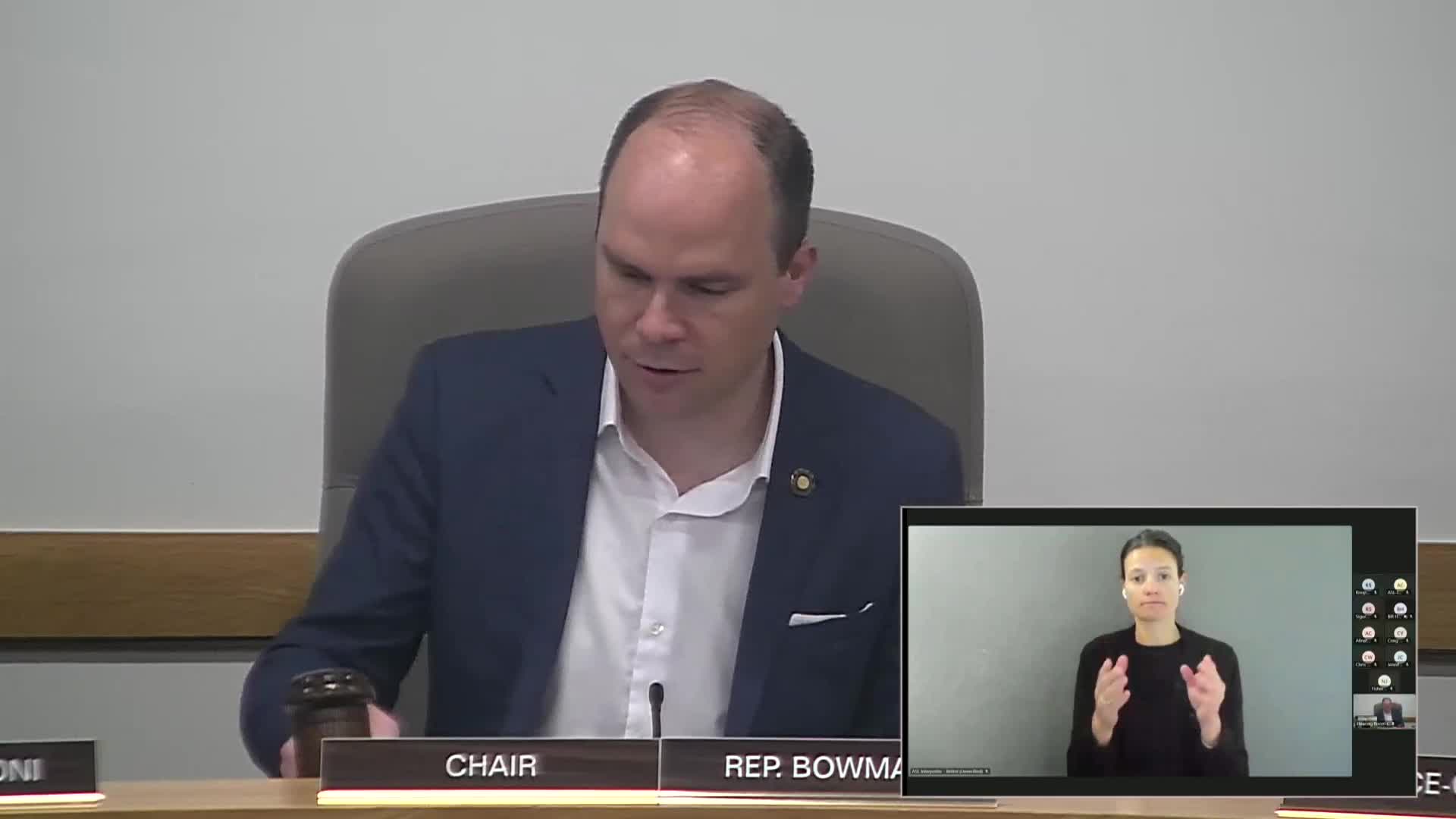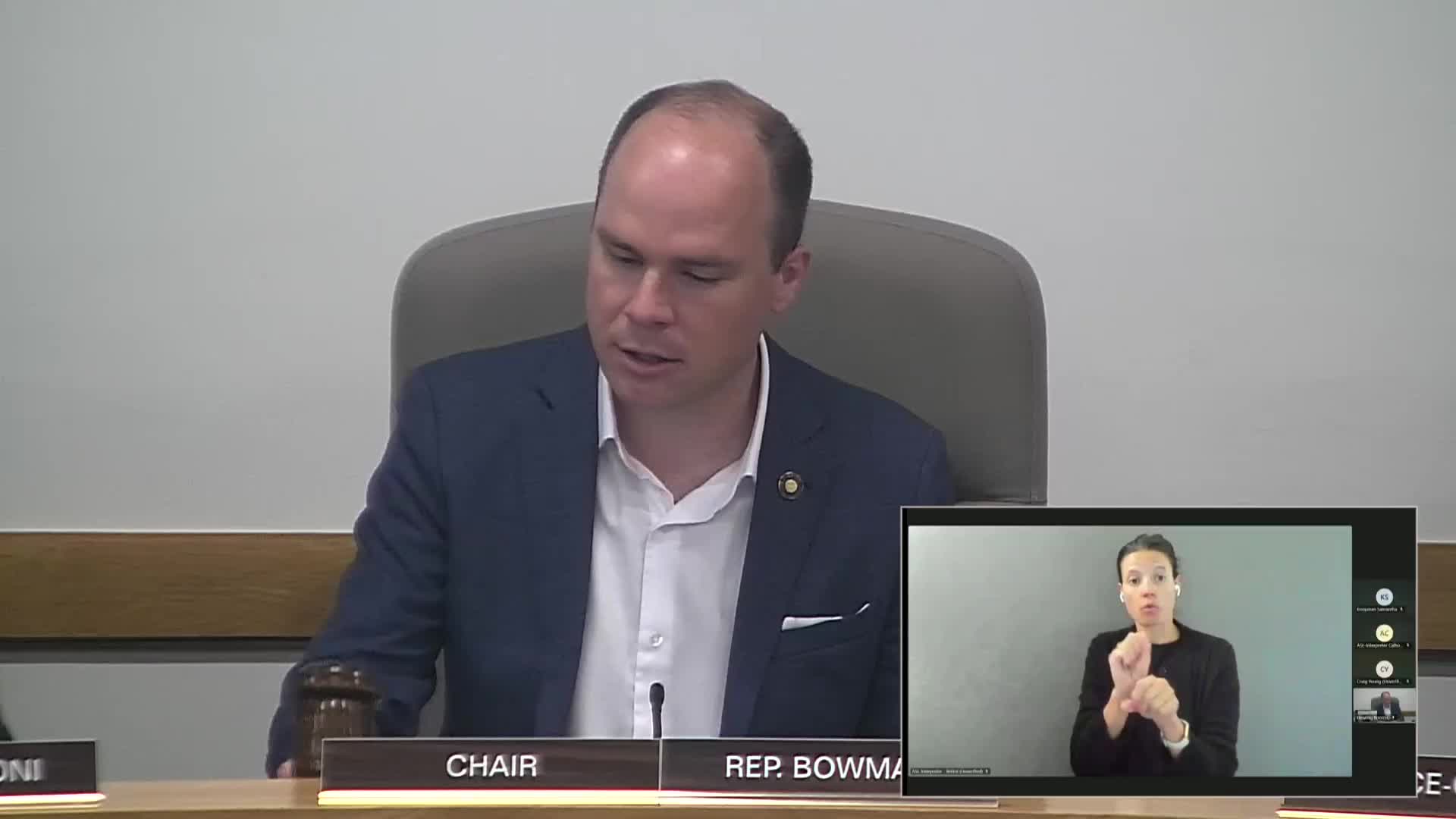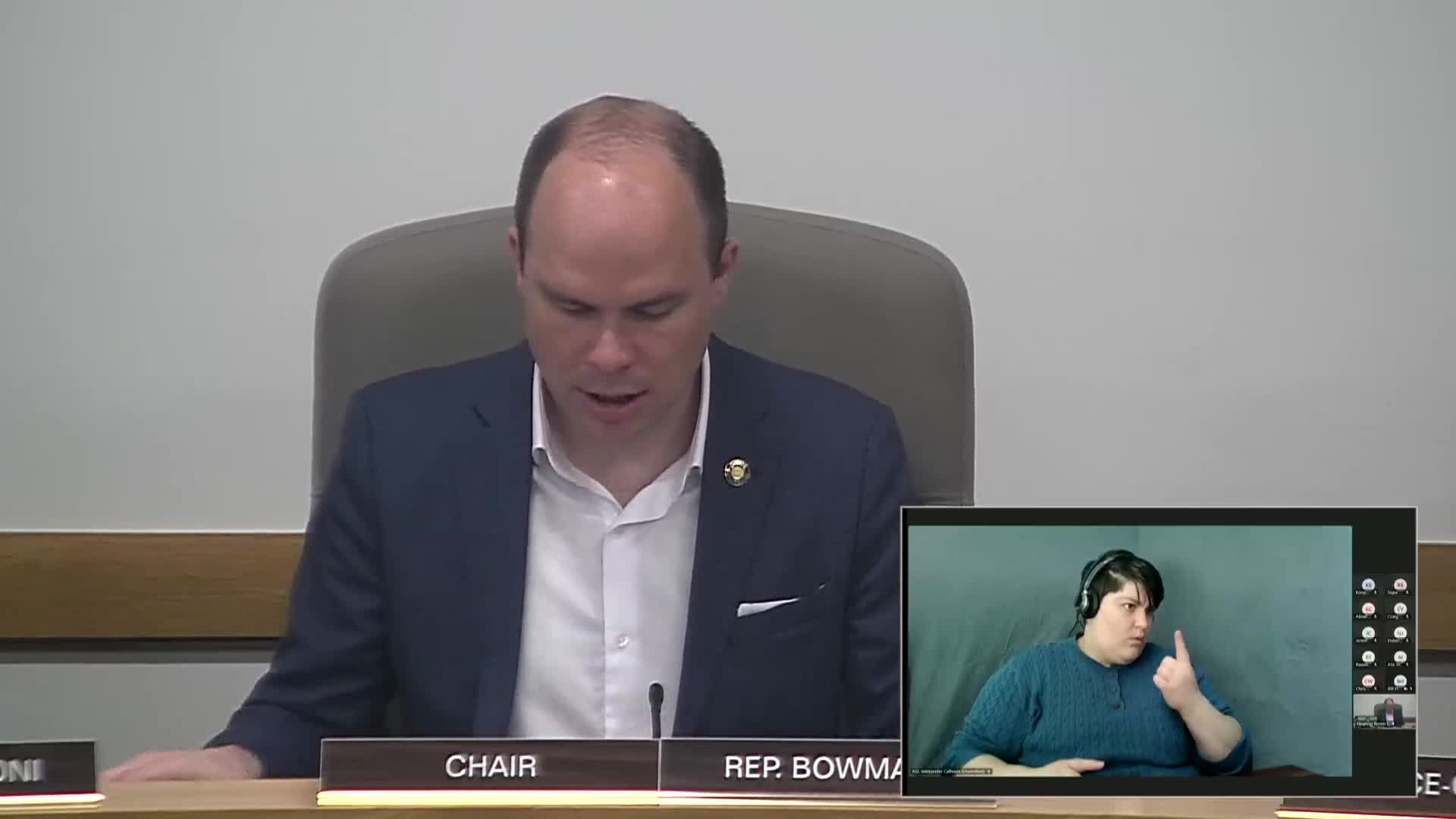Article not found
This article is no longer available. But don't worry—we've gathered other articles that discuss the same topic.

House Rules committee adopts several commemorative resolutions honoring high schools, university teams and coastal institutions

House Rules moves workforce planning, performance‑audit bill to Ways and Means

